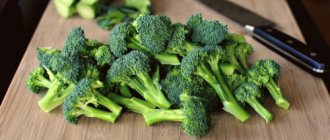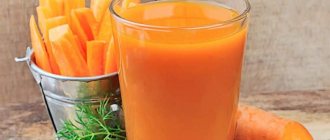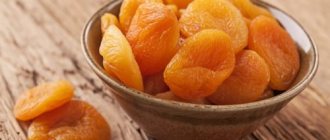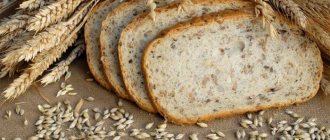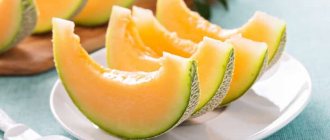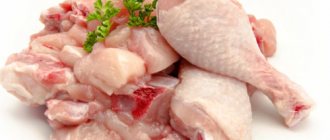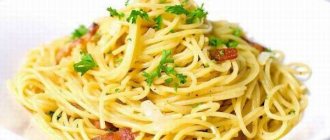The complex of methods for getting rid of pancreatitis necessarily includes a therapeutic diet. A proper diet helps prevent the development of the disease, normalize metabolism, and prevent complications.
Carrots are a low-calorie product. In its raw form it has 41 kilocalories, in boiled form - only 35 kilocalories. The vegetable contains almost no fat and a lot of carbohydrates and proteins.
Carrots for acute pancreatitis and exacerbation of chronic pancreatitis
For acute pancreatitis and exacerbation of chronic pancreatitis Prohibited: raw carrots. Allowed: boiled carrots, pureed in dishes (5-7 days after the attack is over)
In case of acute pancreatitis and exacerbation of chronic pancreatitis, treatment should be carried out in a surgical hospital. The fight against inflammation of the pancreas begins with complete fasting for 1-3 days.
In the future, diet No. 5p is recommended - option I (gentle, pureed, with mechanical gentleness). Duration of diet No. 5p - option I - two weeks. Carrot dishes that are part of diet No. 5p pureed version - carrot puree, carrot soufflé, carrot pudding, steamed carrot cutlets.
Raw carrots contain a large amount of fiber - on average 3.2 g per 100 grams of product. Fiber is poorly digested in pancreatitis. Bloating and pain in the abdominal area, flatulence, and diarrhea occur. In boiled carrots, fiber breaks down into simple sugars. But the glycemic index increases by 4.5 times (GI is a numerical value that shows how much the blood sugar level increases when consuming a particular product)
Carrot juice is contraindicated.
Chemical composition of carrots
Carrots have a low calorie content - 41 kcal raw and 35 kcal after heat treatment, contain virtually no fat (0.1 g), but are rich in healthy carbohydrates (6.9 g) and proteins (1.3 g).
The composition contains all the substances necessary for the human body:
- amino acids;
- alimentary fiber;
- organic acids;
- starch;
- macroelements - potassium, calcium, sodium, magnesium, silicon, sulfur, chlorine, phosphorus;
- trace elements - iron, cobalt, iodine, manganese, molybdenum, copper, selenium, fluorine, zinc, chromium.
Carrots are superior to other vegetables in terms of vitamin A content: 100 g - 240% of the daily value. It is also a valuable source of ascorbic and nicotinic acids, vitamins E, H, K. Orange fruits are valued for their content of B vitamins: thiamine, riboflavin, niacin, choline, pyridoxine, pantothenic acid, folate.
Nutritionists, if possible, advise including carrots in the diet of healthy people every day. It contains high concentrations of beta-carotene. This element performs a number of important functions:
- slows down the aging process;
- protects against influenza and upper respiratory tract infections;
- maintains the health and condition of the skin and mucous membranes;
- has a positive effect on redox processes;
- takes part in the metabolism of proteins, fats, carbohydrates;
- increases resistance to intestinal diseases;
- strengthens the immune system;
- supports normal metabolism;
- ensures proper functioning of the sebaceous and sweat glands;
- maintains healthy teeth and bones;
- Maintains eye hydration and protects against drying out.
Carrots prevent the development of cardiovascular diseases. B vitamins and ascorbic acid increase the density and elasticity of vascular walls and small capillaries, reduce the level of bad cholesterol, and regulate blood glucose levels.
Potassium and magnesium ensure proper functioning of the heart muscle, improve the conduction of nerve impulses, copper is involved in hematopoiesis, and selenium stimulates the formation of red blood cells. As a result, the risk of formation of atherosclerotic plaques is reduced, normal blood flow is maintained, and the development of ischemia, stroke, hypertension, and diabetes is prevented.
What dishes can be prepared from carrots:
Carrot casserole Carrot casserole with cottage cheese Zraz from carrots with cottage cheese Zraz from carrots with apples Potato-carrot cutlets Steamed carrot-apple cutlets Steamed carrot cutlets Stewed carrots, Stewed carrots with prunes Carrot pudding Potato roll with carrots and cottage cheese Carrot roll with cottage cheese Carrot roll with apples Carrot soufflé with cottage cheese Steamed carrot-apple souffle Steamed carrot soufflé
Recipes for dietary dishes with carrots for pancreatitis
Dietary food not only has healing properties, but if prepared skillfully, it can be tasty. We offer a selection of recipes for healthy dishes with carrots that can be prepared for a patient with pancreatitis.
It should be borne in mind that low-fat dairy products are used for preparing dietary dishes.
Carrot puree for acute pancreatitis
Dietary puree of 3-4 carrots can be introduced into the diet after acute attacks of inflammation in the pancreas have been eliminated, and the dish is prepared without adding salt.
How to cook:
- Peel and rinse vegetables.
- Cut into small cubes and place in a saucepan.
- Add water to lightly cover the vegetable.
- Boil for 30-40 minutes from the moment of boiling.
- Grind the hot carrots into a puree using a mixer.
Carrot casserole in a slow cooker
To prepare 1 serving of casserole you will need the following products:
- Carrots – 200 g;
- Egg – 0.5 pcs.;
- Semolina – 10 g;
- Milk – 30 g;
- Sugar – 10 g;
- Salt – 2 g;
- Sour cream – 40 g;
- Drain. butter – 10 g;
- Wheat crackers – 5 g.
How to cook:
- Wash the root vegetable, peel and grate on a fine grater.
- Beat half the egg with sugar.
- Combine the resulting mixture with carrots, pour in milk, add semolina, stir until smooth.
- Grease the multicooker bowl with butter and add the carrot-semolina mixture.
- Bake on the Baking setting for approximately 65 minutes.
- Transfer to a plate, pour over sour cream and serve.
Potato and carrot cutlets
To prepare dietary cutlets you will need the following ingredients:
- Potatoes – 4 pcs.;
- Carrots – 2 pcs.;
- Semolina – 1 tbsp;
- Milk – 100 ml;
- Flour – 1 tsp;
- Drain. oil – 1 tbsp.
- Egg – 1 pc.;
- Salt – a pinch.
How to cook:
- Peel the potatoes and boil until soft.
- Pour milk into another bowl, add butter and heat to 70 degrees.
- Peel and chop the carrots into small strips and add to the milk-butter mixture. Cook over low heat until half cooked, stirring constantly to prevent burning. Remove from heat, cool.
- Rub the hot potatoes through a sieve or grind in a blender and let cool.
- Separate the white from the yolk. Beat the whites into foam.
- Combine carrots, mashed potatoes, and beaten egg whites. Add semolina and yolk to them, mix everything.
- Form small cutlets, roll in flour.
- Bake in the oven for 30 minutes at 180 degrees.
- Before serving, sprinkle with sour cream.
Adding low-fat sour cream or butter to carrot dishes improves the absorption of beta-carotene.
Steamed apple and carrot soufflé
A delicious dessert steamed from the following products will help diversify the dietary table for pancreatitis:
- Carrot – 1 pc.;
- Apple – 1 pc.
- Cottage cheese - 250 ml;
- Egg – 1 pc.;
- Sugar - 2 tsp. .;
- Butter – 2 tsp.
How to cook:
- Peel the vegetables, rinse, cut into small cubes and simmer in a small amount of water until soft.
- Peel the apples, remove the core and grind them together with the finished carrots in a blender or pass through a meat grinder.
- Add cottage cheese, grated yolk with sugar and melted butter to the resulting mixture, mix.
- Separately, beat the protein into a strong foam and add to the rest of the products.
- Grease the molds with oil, add the puree and cook in a steam bath or in a slow cooker for 20 minutes.
- Add yogurt or sour cream before serving.
carrot juice
A healthy and nutritious drink is very easy to prepare:
- Wash and peel the root vegetables.
- Pass through a juicer and strain.
- Dilute with other acceptable juice, take 150-200 ml every other day.
Stewed carrots with prunes
Stewed carrots with prunes would be an excellent addition to a therapeutic diet:
- Carrots – 250 g;
- Drain. butter – 7 g;
- Milk – 13 ml;
- Sour cream – 25 g;
- Prunes – 60 g.
How to cook:
- Chop the peeled and washed carrots into thin strips or grate them.
- Place in a thick-bottomed saucepan, add butter and milk.
- Simmer over low heat until half cooked, stirring occasionally to avoid burning.
- Sort the prunes, rinse and soak in warm water for 15 minutes.
- Then cut into pieces and add to the carrots, bring to full readiness. To improve the taste, you can add 1 tbsp. raisins Prunes can be replaced with dried apricots.
- Serve, top with sour cream.
Carrots for pancreatitis in the stage of stable remission
In case of chronic pancreatitis in the stage of stable remission, raw carrots, shredded, boiled or stewed, are allowed.
Recommended: diet No. 5. If symptoms of pancreatitis do not appear for six months or more, then this period is called a period (stage or phase) of stable remission and the doctor recommends a transition from diet No. 5p to diet No. 5. Diet No. 5 is followed for many months and years.
During this period, raw carrots, chopped on a fine grater, are allowed. Include the above dishes from diet No. 5p, as well as carrot salads, into your diet.
You can find out what dishes can be prepared from carrots in accordance with diet No. 5 here >>
Possible harm and contraindications
Carrots are contraindicated for kidney and liver diseases, large stones in the urinary system, gastrointestinal pathologies in the acute stage, allergies.
A raw food diet creates an unusual load on the organs of the gastrointestinal tract, especially if there are chronic diseases. In people with allergies, the vegetable causes a skin rash, peeling, and itching.
Excess beta-carotene provokes exacerbation of symptoms of pancreatitis and cholelithiasis, vomiting and nausea, drowsiness, lethargy, and headache.
Nutrient content and calorie content of carrots
Calorie content of 100 grams of carrots - 35 Kcal
Carrots are cultivated all over the world. -Carrots vary in taste, color (red, orange, yellow, white, even purple), size (o) Few people know that there are about a hundred varieties of carrots, differing not only in color (orange, white, yellow, red, purple), but also in size, from 5 cm to almost a meter. The beneficial properties of carrots are due to their high nutritional value.
Although carrots are popular primarily due to their high levels of beta-carotene, these tasty root vegetables also contain a wide range of other antioxidants and nutrients, as well as fiber.
Table. Nutrient content in 100 grams of carrots
| Name | Numeric value |
| Proteins, g | 1.30 |
| Fats, g | 0.10 |
| Carbohydrates, g | 6.90 |
| Boron, mg | 0,20 |
| Beta-carotene, mg | 12,0 |
| Vanadium, mg | 0,099 |
| Vitamin A, mg | 2,0 |
| Vitamin B1 (thiamine), mg | 0.06 |
| Vitamin B2 (riboflavin), mg | 0.07 |
| Vitamin B5 (pantothenic), mg | 0.30 |
| Vitamin B6 (pyridoxine), mg | 0.10 |
| Vitamin B9 (folic), mg | 0, 009 |
| Vitamin C, mg | 5,0 |
| Vitamin E (TE), mg | 0.40 |
| Vitamin H (biotin), mcg | 0.06 |
| Vitamin PP (niacin equivalent), mg | 1.10 |
| Vitamin K (phylloquinone), mcg | 13.20 |
| Iron, mg | 0.70 |
| Iodine, mg | 0,005 |
| Potassium, mg | 200 |
| Calcium, mg | 27,0 |
| Cobalt, µg | 0,002 |
| Magnesium, mg | 38 |
| Manganese, mg | 0.2 |
| Copper, mg | 0,08 |
| Molybdenum, mcg | 20 |
| Sodium, mg | 21 |
| Dietary fiber, g | 2.4 |
| Selenium, mcg | 0.1 |
| Sulfur, mg | 6,0 |
| Phosphorus, mg | 55,0 |
| Fluorine, mcg | 55,0 |
| Chlorine, mg | 63,0 |
| Chromium, mg | 0,003 |
| Zinc, mg | 0.40 |
Beneficial properties of root vegetables
It is known that carrots are beneficial for the body as a whole, but especially for the pancreas. It eliminates problems with the digestive system, cleanses the intestines, and helps maintain the functionality of the gastrointestinal tract. It is also a source of micro- and macroelements and vitamins.
Carrots are low-calorie foods. In its raw form it has 41 kilocalories, in boiled form it has even less - only 35 kilocalories. The vegetable contains almost no fat, but is full of carbohydrates and proteins.
In terms of vitamin A content, carrots are ahead of any other vegetables. It is enough to eat 100 grams to get 240% of the daily value. It also contains:
- a nicotinic acid;
- ascorbic acid;
- vitamins E, H, K;
- group of vitamins B;
- organic acids;
- dietary fiber and other beneficial substances.
By including carrots in your daily menu, you can:
- protect yourself from the flu;
- improve the health of the skin and mucous membranes;
- slow down the aging of the face and body;
- strengthen immunity;
- keep teeth and bones intact;
- normalize metabolic processes.
Information stand: Carrots are a storehouse of vitamins and microelements
Recipes for food and drinks
Dietary nutrition for inflammation of the pancreas should not irritate the mucous membranes and burden the organ with additional work. Boiled and grated carrots fully meet these requirements. The tasty and healthy root vegetable is used to prepare puree, pudding, soufflé, salad and steamed cutlets. For better absorption of carotene, you can add a little sunflower, olive or flaxseed oil to your dishes, but only at the remission stage.
Carrots for pancreatitis can be prepared with potatoes and beets, seasoning potato-carrot dishes with milk, and beet-carrot dishes with vegetable oil.
We recommend reading: Rules for eating potatoes for pancreatitis
Puree
Carrot puree is quick and easy to prepare. First, the root vegetables are thoroughly washed, peeled and chopped (in small cubes or strips). Then the prepared vegetable mass is placed in a saucepan, a little water is poured in to cover the carrots, cover with a lid and cook for 30 minutes over low heat. When the carrots are cooked, transfer them to another bowl and chop them with a mixer (or fork) into a homogeneous puree.
If you have a multicooker or double boiler, prepare root vegetables according to the instructions.
At the same time, the vegetable puree will retain much more useful substances than with simple cooking.
You can diversify the dish by adding spices allowed for pancreatitis: sesame seeds, turmeric, etc. If the acidity of the stomach is low, you can add a small amount of skim milk to the root vegetable to prepare a puree.
Disadvantages of a diet for pancreatitis
The need to constantly monitor your diet and the ban on many foods can psychologically depress the patient. With a different type of food from relatives, you have to cook for yourself separately, and each violation of the ban can cause an exacerbation of the disease, which is manifested by abdominal pain, bloating, belching, vomiting and diarrhea. With regular consumption of prohibited foods, it is possible to develop a chronic form of pancreatitis, causing general poor health, digestive problems, anemia, and weight loss.
Pros of diet for pancreatitis
Pancreatitis is a serious disease of the pancreas, in which the tissues of the secretory organ become inflamed. The pancreas participates in the digestive process by producing pancreatic juice. It neutralizes the acidic environment of gastric juice, promotes the breakdown of food and the absorption of nutrients. When the outflow of pancreatic juice from the organ is disrupted or the backflow from the duodenum, enzymes begin to digest the surrounding tissue, causing inflammation of the ducts and the pancreas itself.
The causes of the disease are varied, but they are mainly associated with malnutrition: fasting, dieting, fatty and spicy foods, poisoning, alcohol consumption, and other inflammatory diseases - for example, gastritis, cirrhosis of the liver. Sometimes hormonal disorders, infections, and heredity contribute to pancreatitis. Most often, the disease occurs in middle and old age, so you need to especially carefully monitor your diet at this time and avoid illness.
People at risk for this disease, as well as those who become ill, are forced to comply with a number of dietary restrictions. Otherwise, a malfunctioning, inflamed gland cannot cope with the load, narrowing of the ducts and stagnation of juice occurs, the organ begins to digest itself.
Eating raw or boiled vegetables for inflammation of the pancreas
The healing effect on the body produced by carrots is undeniable:
- increasing immune defense;
- sharpening of vision;
- relief from constipation;
- removal of toxins;
- preventing cell death;
- regulation of fat metabolism.
Carrots are perfectly balanced in the dietary aspect - per 100 g of product there is:
- only 35 calories;
- 0.1 mg fat;
- 7 g carbohydrates;
- 1.2 g protein.
In addition to a high percentage of vitamin A, carrots are rich in:
- carotene and vitamins K, E, C, PP and group B;
- calcium, sodium, iron, potassium and magnesium.
Most useful elements are retained in thermally unprocessed vegetables, however, raw carrots for pancreatitis are strictly prohibited in case of acute inflammation and are not always recommended in case of chronic disease due to their natural fiber content.

